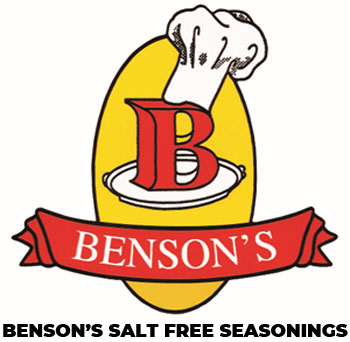When following a heart healthy diet most folks seem to focus on the fat. While fat is important especially the type of fat, it is also important, to be aware of your daily sodium intake. So many folks don’t want to give up their salt. They not only don’t want to, they don’t think they can. They think their food will not have any taste. Usually, they won’t do it until something happens to scare them into it, then the salt has got to go. It is usually very serious, literally, a life or death situation.
A salt substitute will help reduce their daily sodium intake and help them stick to a low sodium diet. Salt substitutes are not all the same and definitely don’t all taste the same.
Low sodium diet guidelines usually suggest the recommended daily sodium intake of 2,000 mg of sodium or less. The Mayo Clinic has stated that we should try to get closer to 1,500 mg of sodium intake per day, or less. Now, this is not just for folks with heart problems or kidney failure. This is the number they want to see everyone, the average person, stay below.
They estimated that if the adult population in the United States would lower their daily sodium intake to below 1,500 mg, we could save at least 90,000 lives each year. That’s amazing news. That is a lot of lives saved. Not mentioning how good this would be for the folks who didn’t die. They would be lowering their risk and perhaps they could eliminate the risk of suffering a stroke or heart attack, avoid heart failure, or kidney failure totally. Just think, that doing this one thing, lowering the recommended daily sodium intake, could prevent so much pain and distress.
In the United States, the FDA stated that nearly one in three adults has high blood pressure which is also known as hypertension.
High blood pressure has been shown to increase the risk of stroke, heart attack, heart failure, kidney failure and even death. Hypertension is called the “silent killer” because you feel fine, there are no symptoms, until one day there you are, and now you have a problem. Perhaps, you had a stroke, a heart attack, your found out you have heart failure, kidney failure or worse. This problem can change the rest of your life and greatly impact your family.
So, what do you do? You need to lower your daily sodium intake.
- First, figure out how much sodium you are eating on a daily basis. Keep a log. Don’t cheat. The totals may shock you. Become aware and start lowering your sodium.
- Get your diet to 2,000 mg of sodium or lower per day.
- Take the salt shaker off the table.
- Don’t cook with salt.
- Eliminate foods that are high in sodium, for example most snack foods, processed foods, fast food, and eating out in restaurants.
- Tip: You may notice that the lower the fat of an item, even a so-called heart healthy product, the higher the sodium will usually be, so be aware.
- Using a salt substitute can help.
Finding a good salt substitute that you like and is good for you is not always easy. However, this one step is key towards helping most of you lower your daily sodium intake. Salt substitutes are not all the same. Also, use good tasting salt free seasonings, that you like, and just like a salt substitute, they do not all taste the same.
Prepare low sodium recipes and learn to cook at home. Purchase no salt added products, or low sodium products. These steps will help you lower your daily sodium intake and follow a low sodium diet which will lead to a more heart healthy diet.
